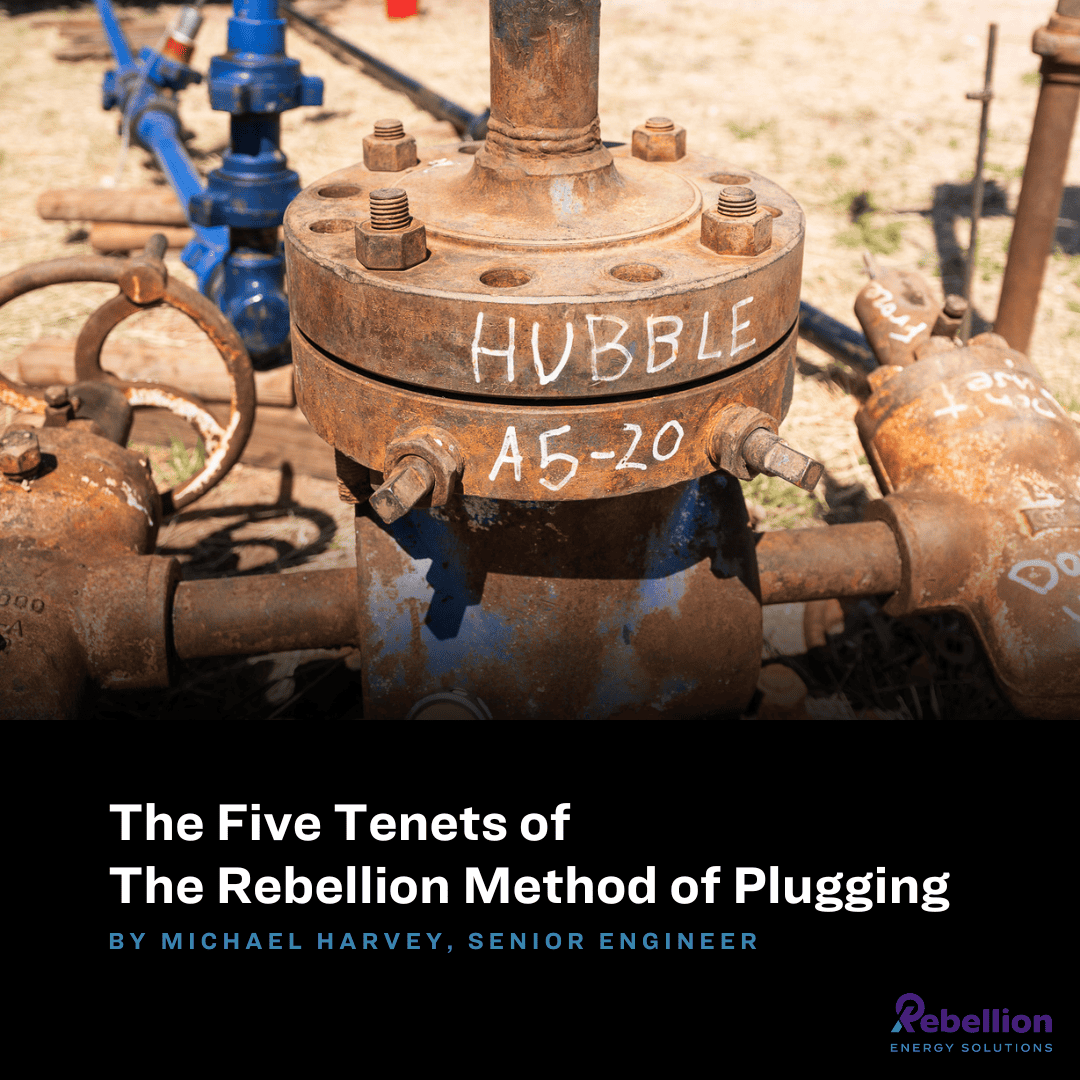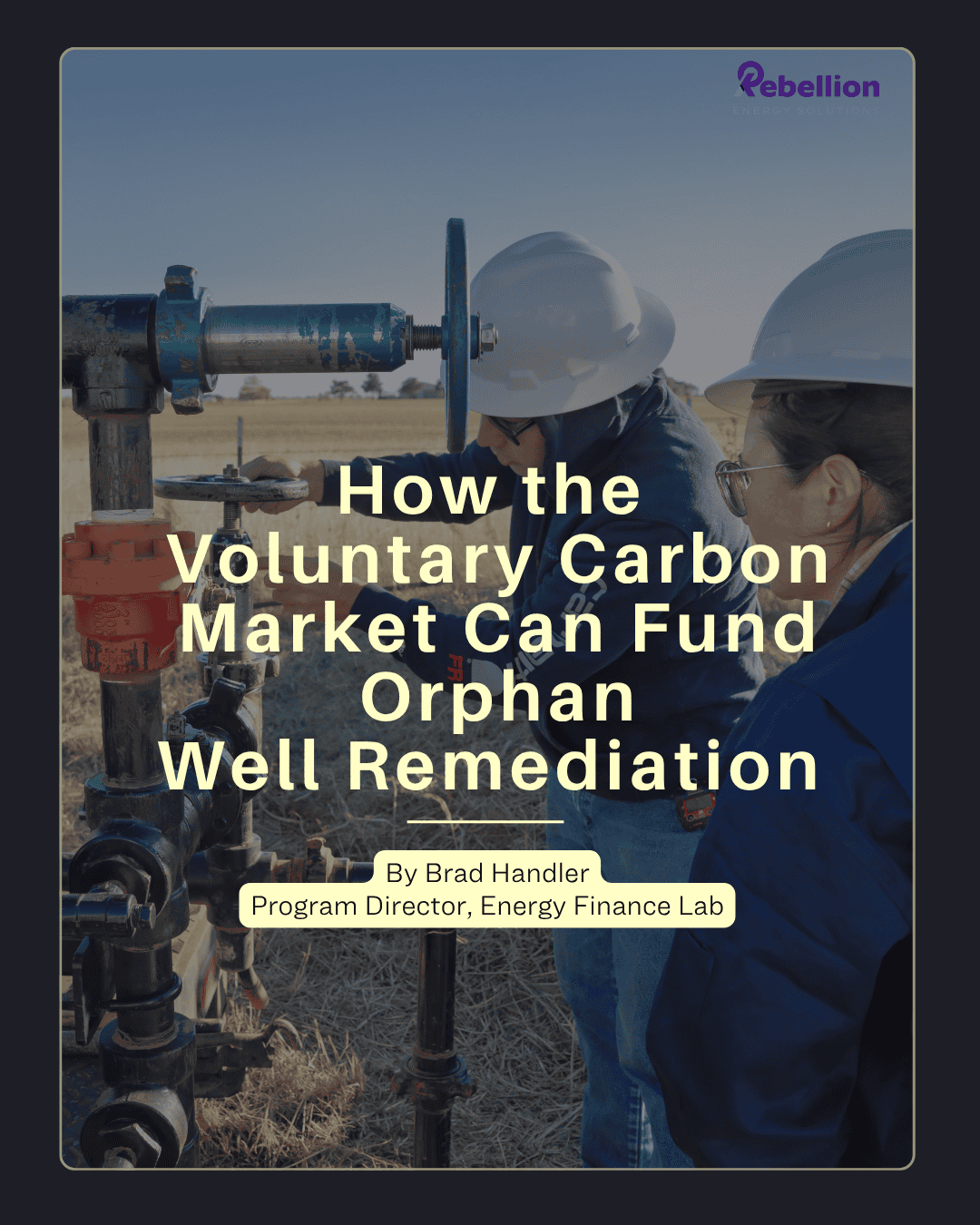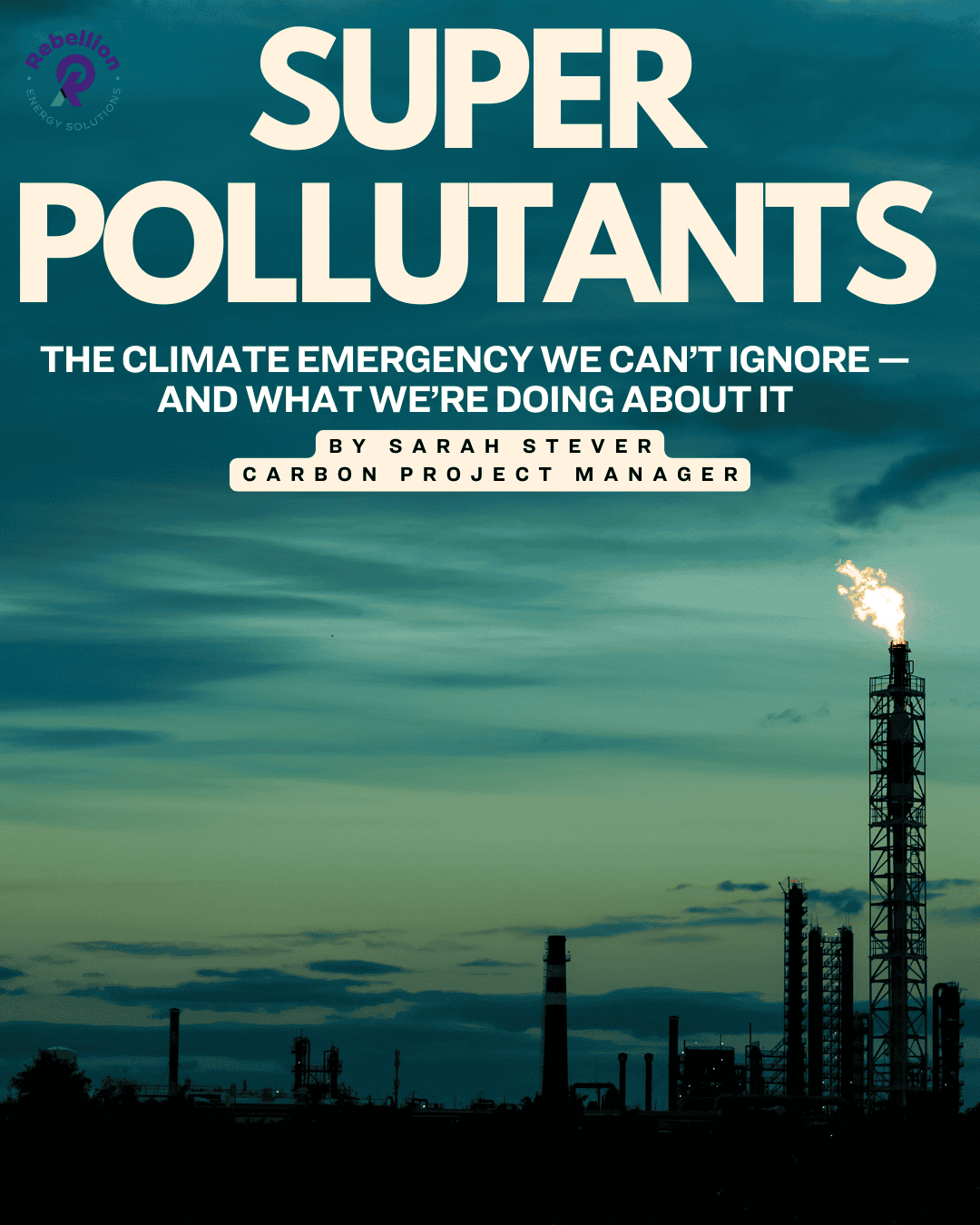Beyond the Math: The Cost of Plugging Orphan Wells
By Kaci Lenz, CFO
Most people will only ever see the carbon credits—the numbers on a ledger, the tons of methane stopped, the offset that lets them meet a goal or tell a story.
What they don’t see is the rest of it.
They don’t see the mud. The cracked casings. The maps that don’t match the land anymore. The families living down the road who’ve waited decades for someone to care. The wells left behind by companies that no longer exist. They don’t see how heavy this work really is – physically, emotionally, and financially.
They see the math.
But this is more than math.
The work is hard. Really hard.
Plugging an orphan well isn’t as simple as showing up with a wrench and a patch. It’s often weeks of preparation. It’s coordinating crews, renting equipment, cementers, snubbing units, or environmental engineers.
You have to locate the wellbore, which might be buried under decades of brush or even a barn. Then test the pressure. Deal with leaks. Cut through rusted steel. Fill it with cement, in layers, by code. Inspect. Log. Reinspect.

Every well is different. Every job is a risk. And none of it is cheap.
In fact, plugging just one orphan well can cost tens of thousands of dollars – sometimes over hundreds of thousands if it’s deep, pressurized, or damaged. And for what? A few carbon credits we have to fight to verify, fight to sell, and often sell below what they’re truly worth.
And yet, we do it anyway.
The expense is real. But so is the purpose.
“Why not go after easier credits?”
We could. Avoided deforestation. Renewable energy. Tree planting. All of that matters too.
But those wells?
They’re leaking now.
They’re hurting now.
And no one else is coming.
We take on the cost because if we don’t, they’ll keep leaking. Not just methane, but responsibility. Accountability. Justice.
The carbon math matters. We run the numbers, submit the data, meet the standards. But that’s not why we get out of bed at 5 a.m., drive five hours to a remote site, and spend days wrangling a 60-year-old pipe out of the ground.
We do it because it needs to be done and we know how to get it done.
The People, the Places, the Why
We’ve worked on wells that sat 50 feet from a family’s front porch. One had been hissing for years. No one told them it was methane.
People who thought these scars would never heal. People who’d given up on being heard.
We do this work for them.
We do it for the air that won’t carry invisible poison anymore.
For the groundwater that won’t get tainted.
For the land that can finally grow something again.
It’s not just a credit. It’s a Commitment.
When someone buys one of our carbon credits, they’re not just buying a number, they’re buying a piece of this story.
They’re funding work that’s hard, expensive, and often overlooked.
They’re standing with communities that fossil fuel companies abandoned.
They’re helping clean up the past so we can build a livable future.
It’s not just about the carbon.
It’s about caring enough to do the hard thing.
We ask you to see beyond the spreadsheet.
See the boots in the mud.
See the methane meter drop to zero.
See the land start to heal.
That’s the work. That’s the cost.
And that’s the future we believe in.



